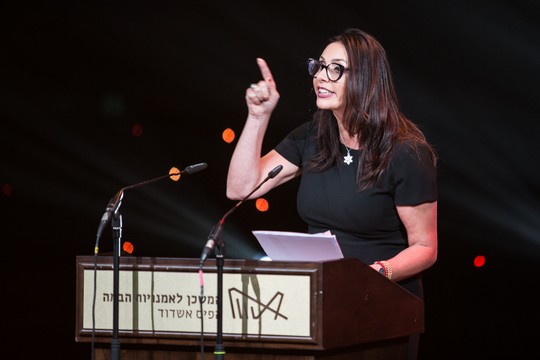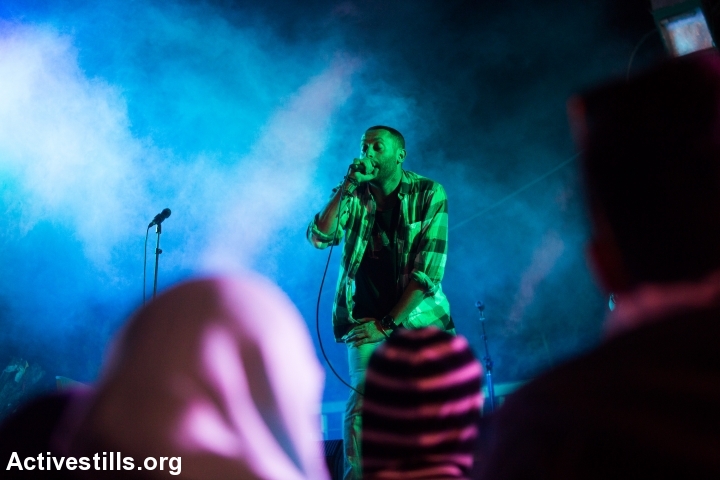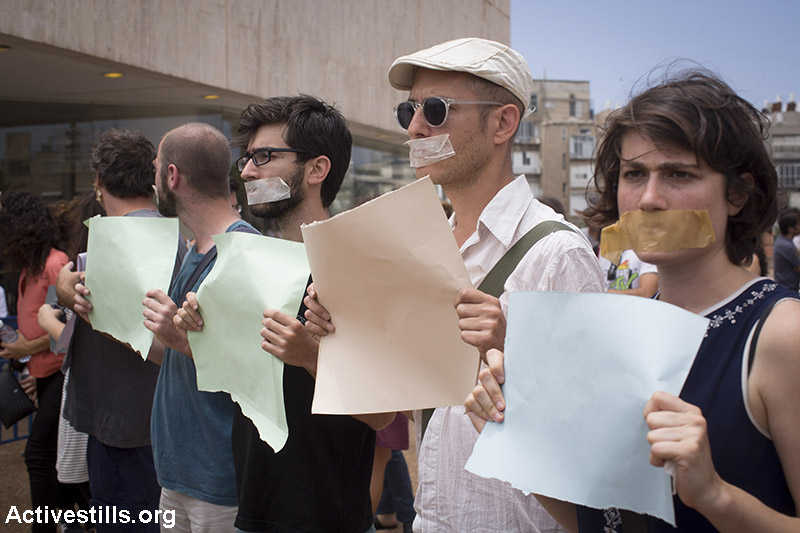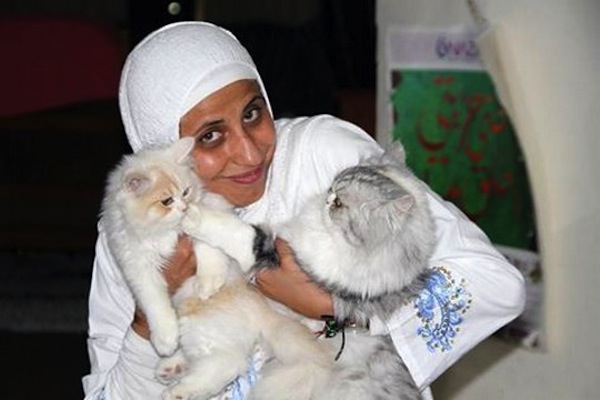Each attempt to silence Palestinian artists only makes our voices grow louder. It’s time to admit that Miri Regev is the best thing to happen to Palestinian culture since Israel’s founding. Period.

I generally do not tend to write about the Mizrahi struggle and what kind of effect Regev is having on it. But in my eyes she is undoing the hard work of Mizrahi activists and functioning mostly as Netanyahu’s emissary, who uses her to spread hatred and fear in the backyards of Israeli society, where the Mizrahi struggle began. Regev does the job well — she removes the burden of racism and oppression from Netanyahu, while making sure to keep the Mizrahi struggle at bay.
Far be it from me, as a Palestinian citizen who shares this country with Arab Jews (or Jewish Arabs), to judge what Regev does vis-a-vis the Mizrahi struggle. Only time will determine its fate once the Regev era is over. But when taking into consideration the outcome of Regev’s stint as culture minister in Israel, I am convinced as a Palestinian that things have never been better.
The Palestinian national poet, Mahmoud Darwish, would never have received all of this exposure, since never has there been such widespread public discussion of his poetry. And this is probably the opportunity to break it to the culture minister that Darwish has been dead for eight years. So no, Mrs. Regev, there is no way to force him to change the words to his poems and threaten to cut him off from state funds.
When was the last time a Palestinian actor was not ashamed of winning an Israeli prize? When was the last time a Mizrahi poet from Lod performed on stage alongside a Palestinian rapper from Lod? Can you remember the last time a Palestinian actress dedicated her Ophir Prize (the Israeli equivalent of an Oscar) to the women living in the 36 unrecognized Bedouin villages in the Negev Desert?
This puts Regev in a tough spot, to the point that she tried to pressure Haifa’s municipality to cancel Palestinian rapper Tamer Nafar’s performance at an Arab-Jewish music festival.

The territorial war over the public’s consciousness began long ago. After our military defeat came nearly 20 years of military rule. The 70s brought about the end of the Shin Bet’s shadowy rule, the control over our education, and the aggressive attempt at Israelizing us. Only in the 80s were we able to, slowly, overcome the trauma of the Nakba; yet Palestinian culture remained underground, and Arabs who dared to do art chose lighter political and social topics.
In the heyday of the Oslo Accords, Palestinian artists began working together with Jews. But distance was always kept, and Israeli artists controlled nearly every aspect of the work, even if it was viewed as “partnership,” and regardless of how left-wing they were. Only in the 00’s did we see the glimmerings of a new generation of conscious Palestinian artists. A generation that speaks fluent Hebrew but is not automatically viewed as a traitor.
But in the Regev era, everyone goes into full gear: Palestinians, Mizrahim, Ashkenazim, leftists, and rightists. And as a result of Regev’s campaign of persecution, the Palestinian narrative finally has the upper hand.
On the one hand, Arab artists whom have undergone a revolutionary process in order to get where they are, the ones who define themselves as proud Palestinians in an Israeli cultural scene full of unabashed hatred and racism. The pain felt over the years by talented actors such as Mohammad Bakri, Makram Khoury, Salim Dau, and Salwa Nakara gave birth to a generation of artists, including Hani Abu Sa’ad, Ibtisam Mara’ana, Salah Bakri, Amal Murkus, Tamer Nafar, and others. Miri Regev just happened to be the one to knock too loudly on the closet, leaving powerful Palestinian artists — and Jews who for years have felt suffocated by the Zionist narrative — no choice but to wake up and go out into the world.

Not only did they come out of the closet of silence, they also began working together. Yes, Arab-Jewish partnership in the world of culture became not only legitimate — it turned into an important tool in the political struggle. It was not so long ago that these kinds of partnerships were harshly criticized by Arab society due to either the constant suspicion of collaboration, the feeling that Arabs are being exploited as a minority, the worry that the Palestinian will be wrongly presented in Israeli culture, and the perpetuation of Jewish cultural supremacy. Today this kind of discourse is hardly heard.
On the other hand, the government’s persecution has reached these Palestinian artists. And the oppression faced by Jewish artists (it is doubtful whether they are leftists or human rights activists, or whether they simply don’t like the direction Israeli culture is taking) finally caused them to understand which way the wind blows, to the point that it forced them to take a stand.

Think about an anonymous Palestinian poet who is just starting out, such as Dareen Tatour. What are the chances that a group of high-brow poets and artists will openly call for her release after she was jailed for writing a “poem on Facebook?” A few years ago I would have said nearly zero. But today, with the attacks on authors, poets, poems, movies, singers, and performances — it’s happening. And that’s a good thing.
If artists don’t get up and take serious action — a kind of cultural intifada — they may find themselves writing a play that will immediately be picked up by the Ministry of Culture and Sport, which will focus on a young Mizrahi woman from the periphery who turned into the culture minister in the Zionist state.
This article was first published in Hebrew on Local Call. Read it here.


